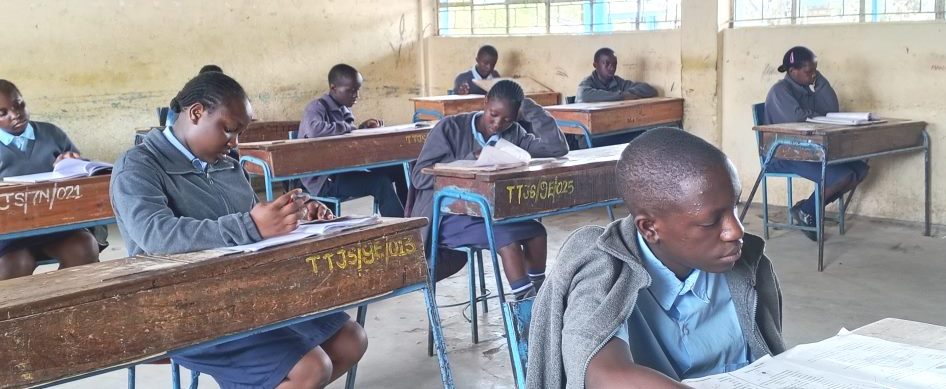The Competency-Based Curriculum (CBC) introduced in Kenya emphasizes the development of skills and competencies rather than rote memorization of content. In Junior School, literature is not centered around set books as in the previous 8-4-4 system. Instead, learners are exposed to various literary texts and assessed based on their ability to analyze them. This shift focuses on critical thinking, comprehension, and interpretation of different texts rather than simply recalling details from a prescribed set of books.
This article explores the role of novellas in Junior School, the expectations for learners, and how teachers can guide students to develop a deep understanding of literature.
1. The Role of novellas in junior school Literature
Novellas, which are shorter than novels but longer than short stories, play a crucial role in Junior School literature. They serve as accessible and engaging texts that help learners develop analytical skills while maintaining their interest. These texts are written in both English and Kiswahili and serve as teaching aids rather than prescribed books for assessment.
Since there are no compulsory set books, learners are introduced to different sample texts to familiarize them with various literary elements such as plot, characters, themes, and stylistic devices. This ensures that they are prepared for assessment using any literary extract provided, regardless of whether they have encountered the specific text before.
2. Skills learners are expected to acquire
Under the CBC framework, the study of literature is designed to build competency in critical reading and analysis. The key skills learners are expected to develop include:
a) Comprehension Skills
Learners must be able to read and understand different texts. This includes identifying the main ideas, summarizing content, and making inferences based on the information provided in a passage.
b) Literary Analysis
Students are taught to examine the structure of a novella, including how the plot develops, the roles and motivations of characters, and the use of themes. Understanding these elements enables them to interpret literature effectively.
c) Identification of stylistic devices
A key component of literary analysis is recognizing and explaining the use of stylistic devices such as metaphors, similes, personification, symbolism, and imagery. These devices enhance the meaning and impact of a text, and learners must be able to analyze their function within a given passage.
d) Understanding themes
Themes are the central messages or underlying ideas in a literary work. Learners must be able to identify and discuss themes such as love, conflict, betrayal, perseverance, and justice based on the provided text.
e) Contextual understanding
Since assessment does not focus on specific books, learners must be able to understand and interpret unfamiliar texts based on the knowledge they have gained. This requires them to apply their analytical skills rather than rely on memorization.
3. How teachers can guide learners
Since assessment in Junior School is based on literary extracts rather than set books, teachers play a crucial role in equipping learners with the necessary skills. Here are some effective strategies teachers can use:
a) Exposing learners to a variety of texts
To help learners become comfortable analyzing any literary extract, teachers should introduce them to diverse texts, including short stories, novellas, and poems. This ensures that students develop flexibility in their analytical approach.
b) Teaching literary terms and devices
Teachers must emphasize the importance of literary terms such as plot, theme, setting, and characterization. Additionally, they should explain how different stylistic devices function in a text and provide practical examples for learners to analyze.
c) Using guided questions
Guided discussions and questions can help learners think critically about a text. For example, instead of simply asking what happens in a story, teachers can ask:
How does the author use description to create mood?
What is the significance of the setting in the story?
How does the character’s behavior reveal their personality?
What themes can you identify in this passage?
By encouraging students to think deeply, teachers help them develop analytical skills that they can apply in assessments.
d) Encouraging Creative Writing
One of the best ways to understand literature is by practicing creative writing. Teachers can ask learners to write their own short stories or novellas using the literary techniques they have learned. This enhances their appreciation of literary structure and stylistic devices.
e) Promoting Group Discussions and Peer Reviews
Discussing literature in groups allows learners to hear different perspectives and interpretations. Peer reviews of written work also help students refine their understanding of literary analysis.
4. Assessment in Junior School Literature
Since no specific books are required for assessment, students will be given extracts from unfamiliar texts and asked to analyze them based on what they have learned. Typical assessment questions may include:
Comprehension Questions: Summarizing the passage, explaining difficult words in context, and identifying the main idea.
Literary Analysis: Identifying characters, explaining their traits, and analyzing their roles in the story.
Thematic Analysis: Identifying and discussing the themes presented in the extract.
Stylistic Devices: Recognizing and explaining the use of literary techniques.
Creative Response: Writing a continuation of a story or a different ending based on the provided passage.
These types of questions ensure that learners apply critical thinking rather than recall specific details from a set book.
5. The benefits of this approach
The shift away from set books towards competency-based assessment has several advantages:
Encourages Critical Thinking: Learners must analyze texts rather than memorize content.
Promotes Creativity: Exposure to various texts helps students develop their own writing and storytelling skills.
Enhances Language Skills: Reading diverse materials improves vocabulary, comprehension, and communication skills.
Prepares Learners for Real-Life Situations: By learning to analyze different types of literature, students develop problem-solving and interpretative skills that are useful beyond the classroom.
The introduction of the Competency-Based Curriculum has transformed the study of literature in Junior School. Instead of focusing on specific set books, learners are trained to analyze various texts, equipping them with critical thinking and literary analysis skills. Teachers play a crucial role in guiding students by exposing them to diverse literature, teaching key literary concepts, and encouraging active discussion and creative writing.
With this approach, learners are better prepared not only for assessments but also for a lifelong appreciation of literature and storytelling. By focusing on skills rather than content memorization, the CBC ensures that students develop a deeper and more meaningful engagement with literature.
By Kamomonti wa Kiambati
You can also follow our social media pages on Twitter: Education News KE and Facebook: Education News Newspaper for timely updates.






